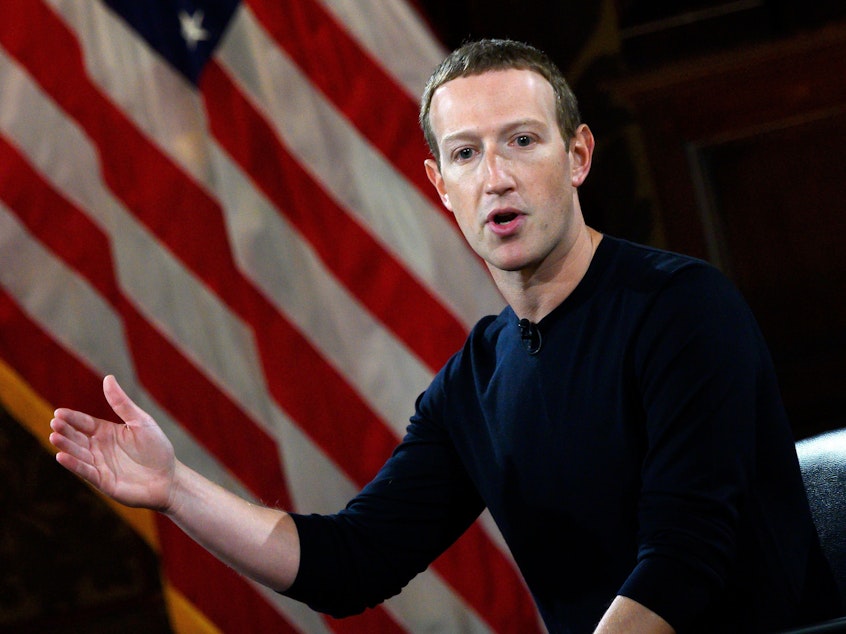'We Have A Big Responsibility': Facebook Rolls Out New Election Security Measures

Facebook announced new efforts Monday to curb the spread of false information on its platform ahead of the 2020 presidential election.
But, in an acknowledgement of the struggle the social network faces to stay ahead of groups intent on manipulating its users, Facebook said it had taken down another set of disinformation networks, this time tied to Iran and Russia. That adds to the more than 50 such networks the company said it has already removed in the past year.
The social media giant is under pressure to stop a repeat of 2016, when Russian trolls spread disinformation on the platform.
"Elections have changed significantly since 2016, but Facebook has changed, too," said Mark Zuckerberg, Facebook's chief executive, on a call with reporters. "We know that we have a big responsibility to secure our platform and stay ahead of some of these new threats to election security," he said, adding that the issue is one of his "top priorities."
Among the changes unveiled on Monday, Zuckerberg said Facebook make it more clear to users who is behind the posts they may see in their feeds.
That includes labeling pages and ads from media outlets it considers to be "state-controlled," which Facebook defines as "wholly or partially under the editorial control of their government.''
It will also put more clear labeling on Facebook and Instagram posts that have been found to be false by third-party fact checkers. And it will require pages with large reach to be more transparent about the organizations that run them.
Facebook also said it is taking more steps to combat voter suppression by banning ads that suggest voting is useless. And it's offering more security for accounts of elected officials, candidates and their staff who may be vulnerable to cyberattack.
Facebook has been stepping up efforts to convince lawmakers and the public that it has learned the lessons of 2016 and is doing enough to protect users from manipulation by foreign influence campaigns.
The company said it had proactively identified four networks of fake accounts it said it had taken down on Monday. Three were tied to Iran and one to Russia, and they targeted Facebook and Instagram users in the U.S., North Africa and Latin America.
The Russian network showed some links to the Internet Research Agency, the Kremlin-backed troll farm involved in interference in 2016, Facebook said.
Zuckerberg said Facebook has become better over time at identifying and removing attempts to manipulate and mislead users.
"We've gone from being on our back foot to proactively identifying clusters of fake accounts and taking them down," he said.
Zuckerberg is scheduled to testify before Congress on Wednesday, and is expected to face questioning about a wide range of subjects, including Facebook's election security efforts.
Editor's note: Facebook is among NPR's financial supporters. [Copyright 2019 NPR]



